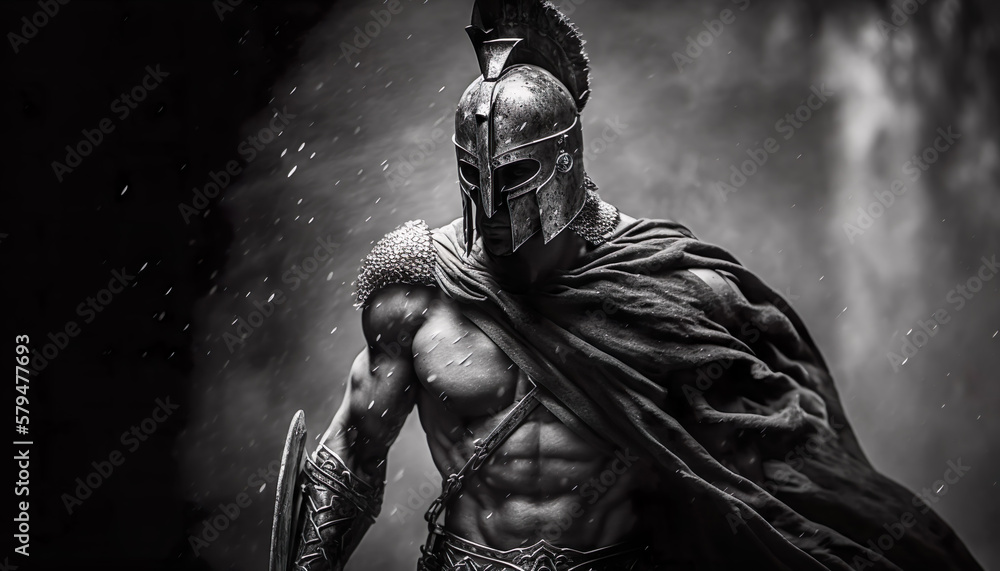Unveiling the Spartan Code: Rules of Life in Ancient Sparta
In the annals of history, few societies have captured the imagination quite like Ancient Sparta. Renowned for its military prowess, discipline, and unique social structure, Sparta's way of life has fascinated scholars and enthusiasts alike for centuries. Central to Spartan society were a set of principles, often referred to as the "Spartan Rules of Life," which governed every aspect of existence for its citizens.
These rules were not merely guidelines but rather a fundamental ideology that shaped Spartan identity and contributed to the city-state's enduring legacy.
Spartan society was built upon the principles of discipline, duty, and sacrifice. From birth, every Spartan was indoctrinated into a system that prioritized the collective over the individual and placed the needs of the state above all else. At the heart of this ethos were the Spartan Rules of Life, a comprehensive framework that dictated behavior, social interactions, and even the very fabric of daily existence. One of the most well-known aspects of Spartan life was the rigorous military training undergone by all male citizens. From a young age, boys were taken from their families and enrolled in the agoge, a state-run education system designed to mold them into formidable warriors. Under the guidance of experienced soldiers known as "tutors," Spartan youths underwent intense physical conditioning, weapons training, and lessons in obedience and endurance. The primary objective of the agoge was not just to produce skilled soldiers but to instill in each Spartan a deep sense of loyalty to the state and a willingness to sacrifice everything for its defense.
One of the most well-known aspects of Spartan life was the rigorous military training undergone by all male citizens. From a young age, boys were taken from their families and enrolled in the agoge, a state-run education system designed to mold them into formidable warriors. Under the guidance of experienced soldiers known as "tutors," Spartan youths underwent intense physical conditioning, weapons training, and lessons in obedience and endurance. The primary objective of the agoge was not just to produce skilled soldiers but to instill in each Spartan a deep sense of loyalty to the state and a willingness to sacrifice everything for its defense.
Central to the Spartan Rules of Life was the concept of equality among citizens. Unlike in many other ancient societies where social status was determined by birthright or wealth, Sparta operated on a more egalitarian basis. All male citizens, regardless of wealth or noble lineage, were expected to contribute to the defense of the state and adhere to the same strict code of conduct. This sense of equality fostered a strong sense of camaraderie among Spartans and ensured that no individual considered themselves above the collective good.
\
Another key tenet of Spartan life was austerity. Spartans eschewed the trappings of wealth and luxury, viewing such indulgences as detrimental to their warrior ethos. Instead, they embraced a simple and frugal lifestyle, valuing discipline and self-restraint above material wealth. This austerity extended to all aspects of Spartan life, from their diet, which consisted primarily of basic fare such as black broth and barley bread, to their living conditions, which were famously spartan in nature.
Perhaps the most striking aspect of Spartan society was the role of women. Unlike in other ancient Greek city-states where women were largely confined to the domestic sphere, Spartan women enjoyed a level of freedom and autonomy that was virtually unheard of at the time. Girls received an education comparable to that of boys, including physical training and instruction in literature and music. Moreover, Spartan women were encouraged to participate in public life, owning property, conducting business, and even engaging in athletic competitions. This elevated status of women in Spartan society was a reflection of the city-state's emphasis on producing strong and capable citizens, regardless of gender.
The Spartan Rules of Life also encompassed a strict code of conduct known as the "Spartan Honor Code." Central to this code were virtues such as courage, loyalty, and obedience to authority. Spartans were expected to uphold these principles at all times, both on and off the battlefield. Any deviation from the honor code was met with severe punishment, often resulting in social ostracism or even exile from the community. This strict adherence to a code of honor helped to maintain social order and cohesion within Spartan society, ensuring that each citizen remained committed to the collective good.
One of the most enduring legacies of Spartan society was its emphasis on physical fitness and prowess. Spartans believed that a strong and healthy body was essential for both military success and personal fulfillment. Consequently, physical training was a cornerstone of Spartan education, with exercise and athletic competitions playing a central role in daily life. From an early age, Spartan children were taught to endure hardship and push their bodies to the limit, preparing them for the rigors of warfare and instilling in them a sense of pride in their physical abilities.
Despite their reputation as fierce warriors, Spartans also placed a high value on intellectual pursuits. While military training was paramount, Spartan education encompassed a broad range of subjects, including philosophy, poetry, and rhetoric. Intellectual development was seen as integral to producing well-rounded citizens capable of contributing to the state in multiple capacities. Indeed, some of the most renowned thinkers of ancient Greece, such as Lycurgus and Xenophon, hailed from Sparta, underscoring the city-state's intellectual heritage.
Conclusion
The Spartan Rules of Life represented a comprehensive ideology that governed every aspect of existence in ancient Sparta. From the rigorous military training undergone by all citizens to the strict code of honor that regulated social interactions, Spartan society was characterized by discipline, equality, and sacrifice. While the city-state's militaristic ethos may seem harsh by modern standards, it nonetheless produced a society that was remarkably cohesive and resilient. The legacy of Sparta continues to resonate to this day, serving as a testament to the enduring power of its guiding principles.

































